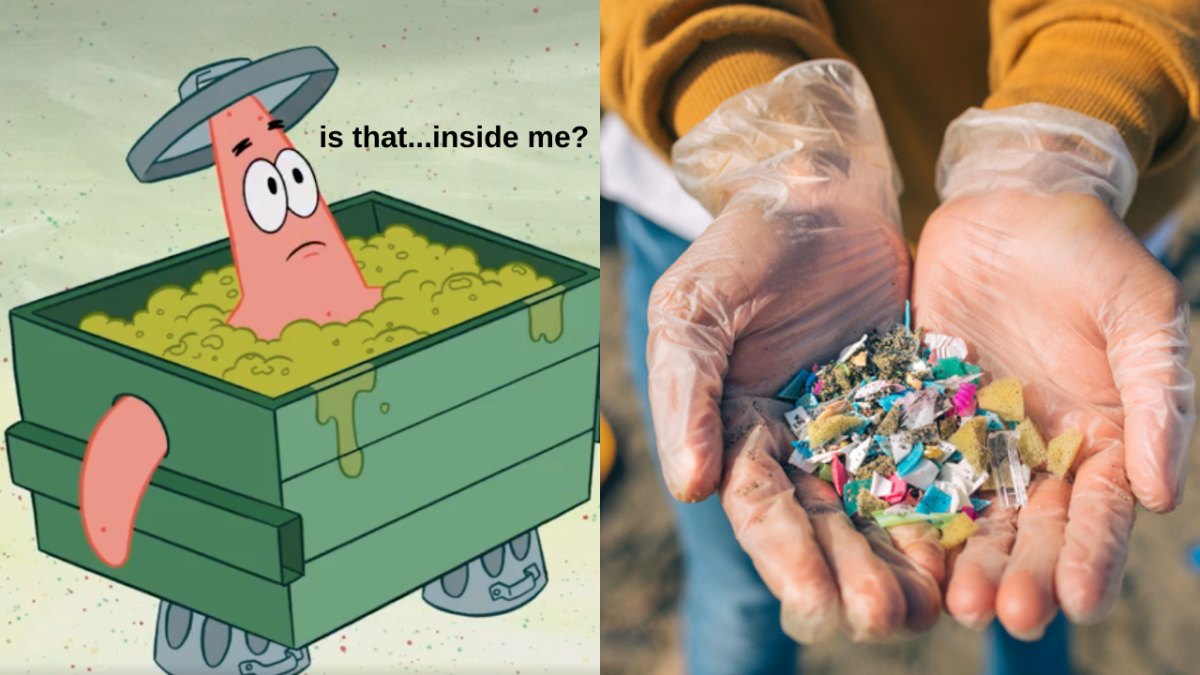
Microplastics have been found in human blood for the first time which certainly feels chill, good and normal. Yummy little plastic floating around in my red blood cells. Excellent, excellent.
The case study has come out of the Netherlands. It’s a relatively small case study: 22 people donated their blood. But microplastics were found in 77 per cent of that group.
According to the study, PET plastic (which you find in drink bottles, clothes and food packaging) was the most common type. It was found in 50 per cent of the donators’ blood, as per Sky News.
The study also found that 36 per cent of the blood had polystyrene and 23 per cent had polyethylene.
Currently feeling like Babs in Chicken Run when she said “I don’t want to be a pie!”. Except I don’t want to be a plastic drink bottle with legs.
With Chicken Run-related fears in mind, what does the presence of microplastics actually mean?
That’s something scientists are still working out.
One of the study’s authors Professor Dick Vethaak told The Guardian that it was “reasonable to be concerned” about the findings. He also raised some of the questions the study brought up. Namely, what exactly is happening to our bodies when microplastics get in there?
“Are the particles retained in the body? Are they transported to certain organs, such as getting past the blood-brain barrier?” he said.
“And are these levels sufficiently high to trigger disease? We urgently need to fund further research so we can find out.”
Vethaak also spoke to The Independent, where he said the info was “certainly alarming”.
“[The findings show] people apparently ingest or inhale so much plastic that it can be found in the bloodstream,” he explained. He also said that particles like this could cause chronic inflammation.
Cue me slowly putting down my placcy drink bottle.
At the moment, scientists haven’t worked out how much plastic in the bloodstream is dangerous. But either way I’m not sold on the idea.
The research was partly funded by UK-based social enterprise group Common Seas.
“We breathe in, drink and eat plastic particles every day. As plastic production skyrockets so does our exposure,” said CEO Jo Royle in an open letter calling for more research funding.
“The scientists are worried that plastic may harm our immune system and increase chronic illnesses, like diabetes and cardiovascular disease.
“We all have a right to know what plastic is doing to our bodies.”
Not loving the image of my red blood cells zooming around on tiny little microplastic surfboards TBH.



